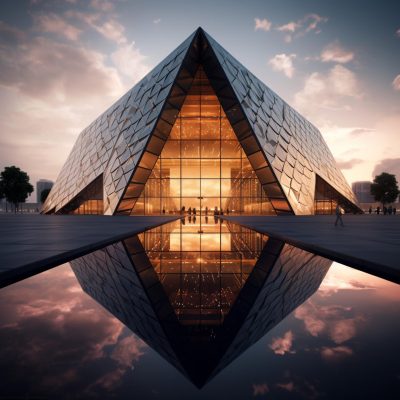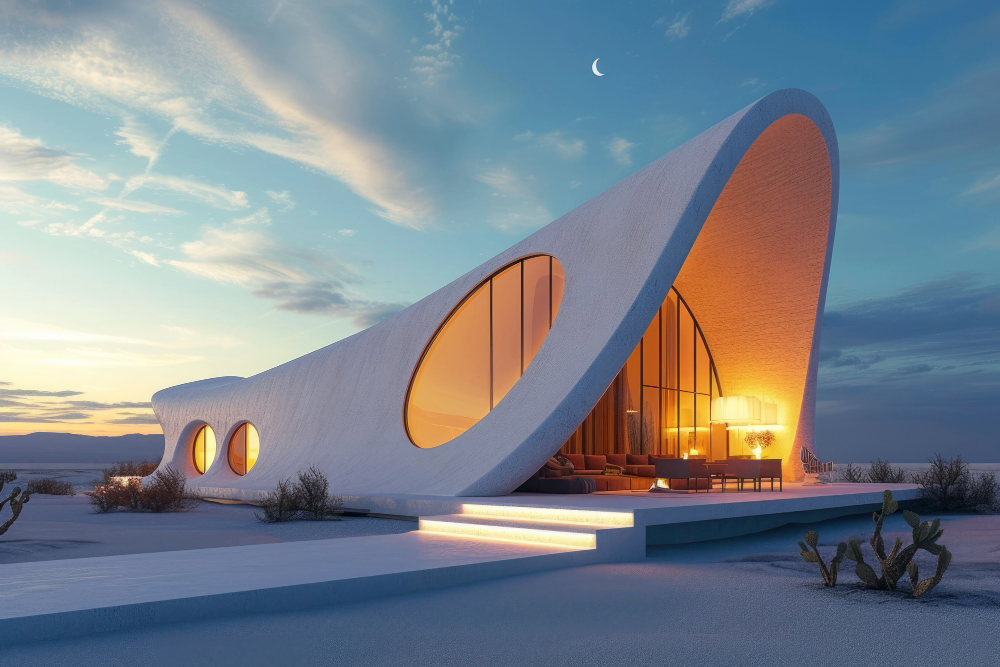
18 NOV 2023
“ Discover the synergy between ancient wisdom and modern research in our exploration of intelligent architectural space design. Drawing from recent study and timeless Vedic scriptures, we unveil how harmonious spaces catalyze personal and collective evolution . From enhancing well-being to fostering social connections and embracing sustainability, our findings reveal a profound alignment between ancient philosophies and contemporary science. Join us in celebrating the transformative potential of intelligently designed environments, where human growth thrives in harmony with the wisdom of the ages .”
Architectural designs that successfully blend ancient wisdom with modern science are influenced by several factors:
1. Harmonious Environment
Natural light and ventilation align with Vedic balance, enhancing physical and mental well-being.
Architecture inspired by creating harmony with the environment seeks to integrate buildings seamlessly into their surroundings .This might involve using natural materials that complement the landscape, designing structures to take advantage of natural light and ventilation, or even incorporating green spaces and vegetation into the building design.

2. Interconnectedness
Designs encouraging interaction foster relationships , echoing Vedicprinciples of interconnectedness.
Architecture can be designed to facilitate physical connections between different spaces, both internally within a building and externally with the surrounding environment.
This interconnectedness can promote flow and movement, encouraging interaction and engagement among occupants.
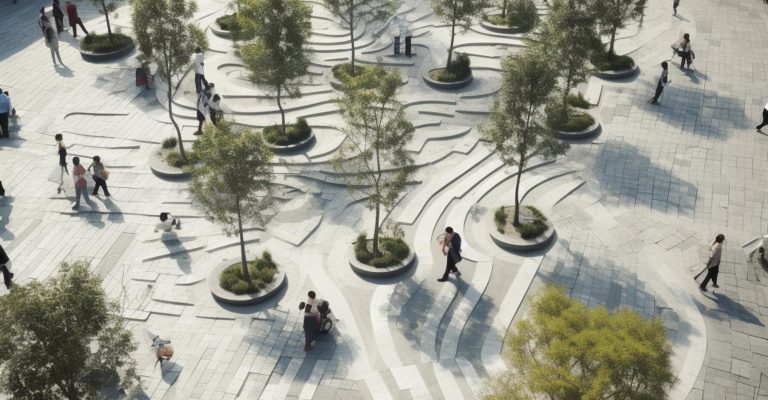
3. Nature's Harmony
Green spaces reflect Vedic everence for nature, offering havens for reflection and rejuvenation.
Architecture inspired by nature harmony often incorporates biophilic design principles, which seek to connect occupants with the natural world. This might involve integrating natural elements such as plants, water features, or natural materials into the built environment to improve well-being and foster a sense of connection to nature.
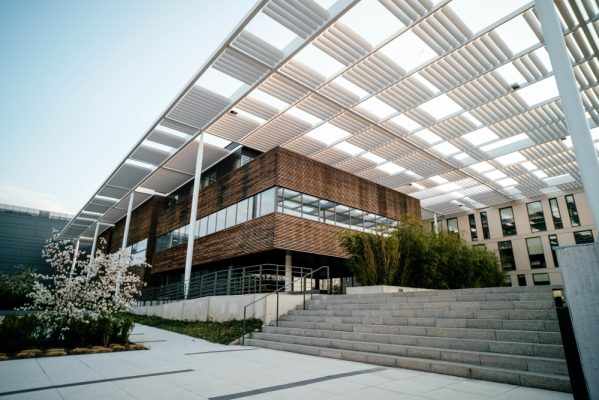
4. Adaptability
Tech-driven designs embrace change, mirroring Vedic growth through transformation.
Architecture inspired by nature harmony often incorporates biophilic design principles, which seek to connect occupants with the natural world. This might involve integrating natural elements such as plants, water features, or natural materials into the built environment to improve well-being and foster a sense of connection to nature.
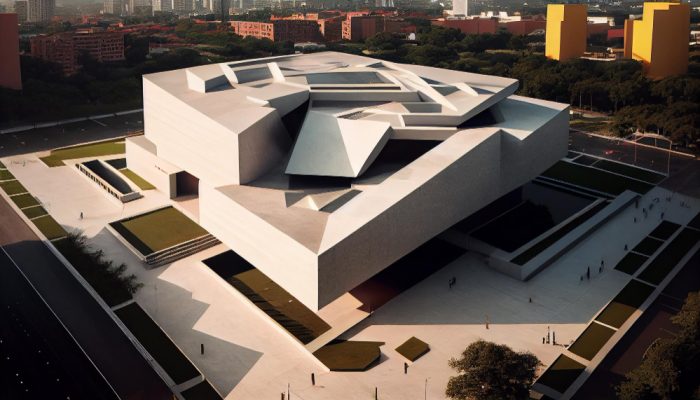
5. Sustainability
Eco-conscious designs align with Vedic responsibility, nurturing personal and collective growth
Sustainable architecture prioritizes energy efficiency by incorporating passive design strategies such as orientation, shading, insulation, and natural ventilation. Additionally, renewable energy systems like solar panels, wind turbines, and geothermal heating are often integrated to reduce reliance on fossil fuels.
